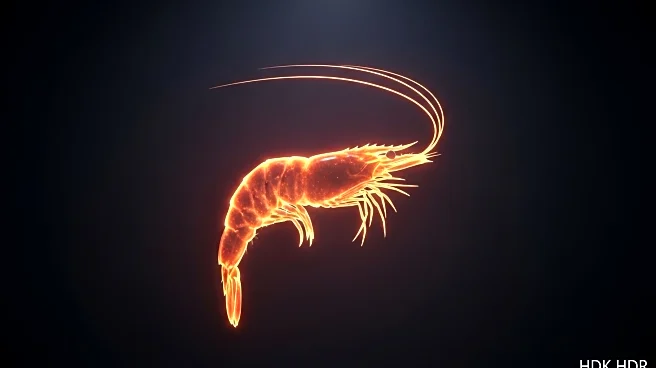What's Happening?
Senator John Kennedy of Louisiana has raised concerns about the potential dangers of consuming radioactive shrimp, which he claims could lead to bizarre health effects such as growing an extra ear or turning into an alien. His remarks were made on the Senate floor, accompanied by a photo of a creature from the movie 'Alien.' The senator's comments were prompted by recent recalls of imported shrimp found to contain the radioactive isotope cesium-137, posing an increased cancer risk according to the FDA. Kennedy criticized foreign shrimp producers for not adhering to U.S. standards and suggested that imported shrimp might be treated with antibiotics, leading to resistance in consumers. He advocated for supporting domestic shrimp production, particularly from Louisiana, which is a major shrimp producer.
Why It's Important?
The issue highlights the ongoing debate over food safety and the regulation of imported goods in the United States. Kennedy's comments underscore the importance of ensuring that food products meet safety standards to protect consumers from potential health risks. The senator's advocacy for domestic shrimp production also touches on economic interests, as increased local production could benefit states like Louisiana economically. The broader implications include discussions on trade policies, food safety regulations, and the balance between cost and quality in consumer goods.
What's Next?
The recall of radioactive shrimp may prompt further scrutiny of imported seafood and could lead to calls for stricter regulations and inspections. Stakeholders, including domestic shrimp producers, may push for policies that favor local production. Additionally, Kennedy's comments might spark public debate on food safety and the need for transparency in food sourcing. The FDA and other regulatory bodies may face pressure to enhance monitoring and enforcement of food safety standards.
Beyond the Headlines
Kennedy's remarks, while dramatic, bring attention to the ethical considerations of food sourcing and the responsibilities of producers to ensure consumer safety. The situation also raises questions about the environmental impact of shrimp farming practices abroad and the potential long-term health effects of consuming contaminated food. The cultural dimension includes the perception of foreign versus domestic products and the trust consumers place in regulatory bodies to safeguard public health.











